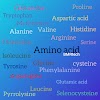What is Vitamin E? | History of Vitamin E | Function of Vitamin E
Vitamin E is a vitamin that dissolves in fat. It is found in many foods including vegetable oils, cereals, meat, poultry, eggs, fruits, vegetables, and wheat germ oil. It is also available as a supplement.
Or
Vitamin E is a group of eight fat soluble compounds that include four tocopherols and four tocotrienols. Vitamin E deficiency, which is rare and usually due to an underlying problem with digesting dietary fat rather than from a diet low in vitamin E, can cause nerve problems. Vitamin E is a fat-soluble antioxidant protecting cell membranes from reactive oxygen species.
Vitamin E is used for treating vitamin E deficiency, which is rare, but can occur in people with certain genetic disorders and in very low-weight premature infants. Vitamin E is also used for many other conditions, but there is no good scientific evidence to support these other uses.
History :-
Vitamin E was discovered in 1922, isolated in 1935 and first synthesized in 1938. Because the vitamin activity was first identified as essential for fertilized eggs to result in live births (in rats), it was given the name "tocopherol" from Greek words meaning birth and to bear or carry. Alpha-tocopherol, either naturally extracted from plant oils or, most commonly, as the synthetic tocopheryl acetate, is sold as a popular dietary supplement, either by itself or incorporated into a multivitamin product, and in oils or lotions for use on skin.
Function-
Vitamin E has the following functions:
It is an antioxidant. This means it protects body tissue from damage caused by substances called free radicals. Free radicals can harm cells, tissues, and organs. They are believed to play a role in certain conditions related to aging.
The body also needs vitamin E to help keep the immune system strong against viruses and bacteria. Vitamin E is also important in the formation of red blood cells. It helps the body use vitamin K. It also helps widen blood vessels and keep blood from clotting inside them.
Cells use vitamin E to interact with each other. It helps them carry out many important functions.






0 Comments